HOMEOPATHY
A simple yet impeccable analogy. Here’s why:
Home is a place that provides warmth, comfort and a sense of safety. Homeopathy is no different.
The renowned small sweet pills, the second they are ingested, can’t help but work their magic into our system providing almost instant well-being and inner warmth.
The physician’s healing words accompanied with a patient listening renders a sense of comfort.
The perfect remedy having nil side effects offers a feeling of safety.
One of the major reasons Homeopathy is so close to the hearts of plenty is because more than just being a part of our lives, it’s more like a way of life in itself.
This is the best way to summarise homeopathy.
Homoeopathy, The Science of Similarity
The term Homeopathy comes from the Greek words, “omoios” = similar and “pathos” = suffering.
Homoeopathy aims to improve the level of health of an organism through the administration of medicinal products according to the principle of similarity. It can be regarded as a medicine of the whole person since it is strictly individualized and takes into account the physical, emotional, mental, constitutional, biographical and environmental state of the patient.
Christian Friedrich Samuel Hahnemann (1755–1843) is the visionary to whom we owe the discovery of this phenomenal healing science. He found that any substance administered in small doses may correct the physiologic imbalance of a diseased organism presenting symptoms similar to those that the substance causes when tested in healthy people.
Homeopathy originated as an experimental discipline rather than spawning from a series of theoretical concepts.
Observational studies assessing quality of life changes during long-term homeopathic therapy showed how the patient’s experience of healing involves a transformational feeling entailing the patient–provider relationship. Patients also reported that the treatment helped them become released from the chronic dysfunctional patterns at the somatic, social, and spiritual levels. This confirms the claim that homeopathy triggers a global healing response resulting in a greater sense of freedom at multiple levels. The medicine is not only concerned with curing the disease but also with building up of the individual.
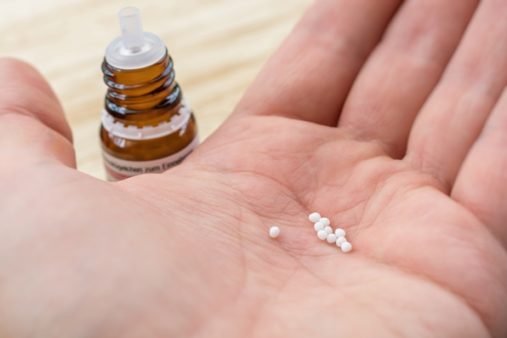
Less is More
“A smaller amount of something can be much more effective than a large or excessive amount.”
Homeopathic process of dynamization is an attrition method or a classical Top-Down nanofabrication, as practiced in Nanotechnology, in which bulk materials will systematically get reduced in its size and finally achieve the state of nanoparticles. This discovery of the fundamental nature of homeopathic potencies definitely upgrades the status of homeopathy from a ‘placebo therapy’ or ‘faith healing’ to ‘Nanomedicine’. (Nanomedicine -Dr E.S Rajendran)
With the recent advent of ‘Less is more’, here is a timeless system of medicine that has been curing patients based on this principle for over 200 years.
It’s the Human Being not just the Human Body
Homeopathy treats the sick individual; it is therefore a speciality. It is found appealing to people who realize and prize their individuality and demand medical treatment as individuals. The very foundation of homeopathic practice considers man as a complete unit in itself of which all his parts comprise a well-balanced whole. It therefore does not consider any one part as being ill, but considers the manifestation of illness in one part in its relation to the whole man. Therefore, in an era of specializations, choose a speciality that encapsulates it all.
Conventional medicine has always believed in understanding the human body by breaking it into parts which involves sending a patient to different doctors / specialists to treat each individual part. This often leads to multiple medicines being prescribed not to mention their side effects. Whereas, Homeopathy looks at the “Human Being” in a Holistic way, by looking at how these parts function together.
In the course of Homeopathic treatment, many patients have commented that they don’t even feel like they are taking any medicine. That is the best outcome any healer can hope for. This shows how natural homeopathy feels to the body.
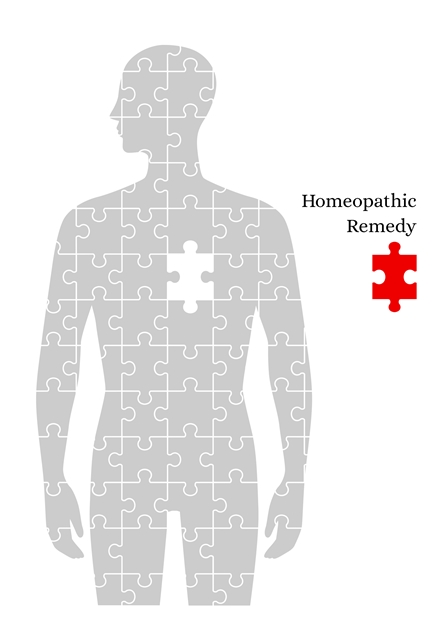

It’s the Human Being not just the Human Body
Homeopathy treats the sick individual; it is therefore a speciality. It is found appealing to people who realize and prize their individuality and demand medical treatment as individuals. The very foundation of homeopathic practice considers man as a complete unit in itself of which all his parts comprise a well-balanced whole. It therefore does not consider any one part as being ill, but considers the manifestation of illness in one part in its relation to the whole man. Therefore, in an era of specializations, choose a speciality that encapsulates it all.
Conventional medicine has always believed in understanding the human body by breaking it into parts which involves sending a patient to different doctors / specialists to treat each individual part. This often leads to multiple medicines being prescribed not to mention their side effects. Whereas, Homeopathy looks at the “Human Being” in a Holistic way, by looking at how these parts function together.
In the course of Homeopathic treatment, many patients have commented that they don’t even feel like they are taking any medicine. That is the best outcome any healer can hope for. This shows how natural homeopathy feels to the body.
Constitutional Medicine – Your Soulmate
The symptoms are combined and analysed to form a characteristic pattern by way of which a single remedy is administered. This remedy is called the Constitutional remedy. The concept of administering a “single remedy” is most unique to Homeopathy. It is like finding your soulmate in medicine. Just how there might be one perfect person for everyone, similarly, there is one perfect remedy befitted for each one of us.

 Hi, I am one of an old patient of Dr. Zubin Marolia under his treatment for more than a decade now. He has treated me for any and every problem of my wellbeing. The results stands healthily satisfying for me each time.
Hi, I am one of an old patient of Dr. Zubin Marolia under his treatment for more than a decade now. He has treated me for any and every problem of my wellbeing. The results stands healthily satisfying for me each time. My name is Rashmi Lotlikar and I went to Dr. Zubin Marolia for a skin infection called Molluscum Contagiosum.
My name is Rashmi Lotlikar and I went to Dr. Zubin Marolia for a skin infection called Molluscum Contagiosum.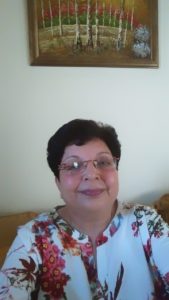 I am a patient of cancer since 2016. After surgery and radiation I was put on Hormone therapy wherein I have to take a pill every day for five years. I was facing a lot of nausea all day and lack of appetite and anxiety problems with the result I had lost 10 kgs. The doctors gave a lot of allopathy medicines to help me but nothing really worked. I was really desperate to find a solution and that iswhen I contacted Dr Zubin Marolia and asked him if homeopathy could help me in this respect.
I am a patient of cancer since 2016. After surgery and radiation I was put on Hormone therapy wherein I have to take a pill every day for five years. I was facing a lot of nausea all day and lack of appetite and anxiety problems with the result I had lost 10 kgs. The doctors gave a lot of allopathy medicines to help me but nothing really worked. I was really desperate to find a solution and that iswhen I contacted Dr Zubin Marolia and asked him if homeopathy could help me in this respect. 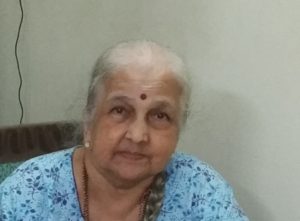 Mrs V S 83 years.
Mrs V S 83 years.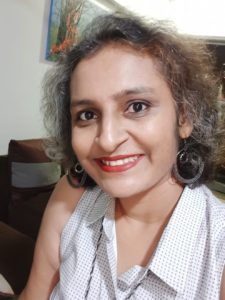 I was diagnosed with breast cancer in November 2017. I went through the complete treatment cycle of surgery, chemo therapy and radiation therapy till June 2018. After I fully recovered from the cancer, my sister in law, who also is a homeopath, suggested me to meet Dr. Zubin sir for seeking a homeopathic approach to post cancer life.
I was diagnosed with breast cancer in November 2017. I went through the complete treatment cycle of surgery, chemo therapy and radiation therapy till June 2018. After I fully recovered from the cancer, my sister in law, who also is a homeopath, suggested me to meet Dr. Zubin sir for seeking a homeopathic approach to post cancer life. 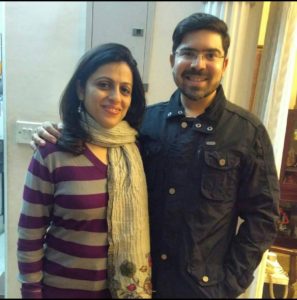 Hello Doctor Zubin
Hello Doctor Zubin  I had Warts on my neck. I went to 2-3 dermatologist, they all told me there is no permanent solution to it.
I had Warts on my neck. I went to 2-3 dermatologist, they all told me there is no permanent solution to it. Dr. Zubin Marolia’s treatment is a real blessing. My teenaged son hadproblems of allergies, asthma, allergic rhinitis from childhood.
Dr. Zubin Marolia’s treatment is a real blessing. My teenaged son hadproblems of allergies, asthma, allergic rhinitis from childhood. Just speaking about my family’s experiences with homeopathy treatment given by our Dr. Zubin Marolia.
Just speaking about my family’s experiences with homeopathy treatment given by our Dr. Zubin Marolia.  I met Dr. Marolia, more fondly called Mamu, roughly two decades ago. My daughter’s pediatrician had his office right opposite, and we used to run into him regularly. He was always extremely friendly, and we all got along well.
I met Dr. Marolia, more fondly called Mamu, roughly two decades ago. My daughter’s pediatrician had his office right opposite, and we used to run into him regularly. He was always extremely friendly, and we all got along well.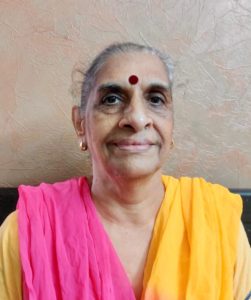 Hello, My mother Neela Nevrekar aged 69 was diagnosed with breast cancer in July 2017.
Hello, My mother Neela Nevrekar aged 69 was diagnosed with breast cancer in July 2017.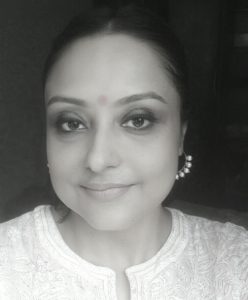 The night I received the devastating diagnosis of Stage 3 Ovarian Cancer, a couple of months after my 43rd birthday, I was in an ICU, just about gaining consciousness from a debulking surgery that lasted about nine hours. It was surreal. The implications of the diagnosis did not sink in. I just realised I had a long struggle ahead of me.
The night I received the devastating diagnosis of Stage 3 Ovarian Cancer, a couple of months after my 43rd birthday, I was in an ICU, just about gaining consciousness from a debulking surgery that lasted about nine hours. It was surreal. The implications of the diagnosis did not sink in. I just realised I had a long struggle ahead of me.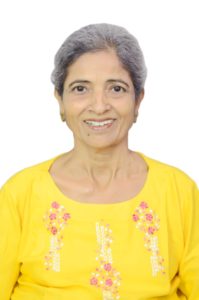 Hi everyone! I am Pushpa Gurnani, aged 65 years. I stay in India – Andheri West. I am married having 2 daughters one 42 yrs and the other one 37 yrs. I am a working woman.
Hi everyone! I am Pushpa Gurnani, aged 65 years. I stay in India – Andheri West. I am married having 2 daughters one 42 yrs and the other one 37 yrs. I am a working woman. 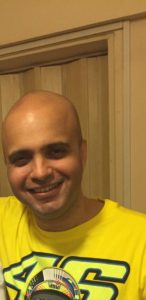 I’ll never forget my amazement at the first time Dr. Marolia had administered a medication to me for a serious injury, eleven years ago. I didn’t even have time to share my symptoms with him. While talking on the phone he said, “Naushad, I know your personality-psyche so therefore take the following remedy…”
I’ll never forget my amazement at the first time Dr. Marolia had administered a medication to me for a serious injury, eleven years ago. I didn’t even have time to share my symptoms with him. While talking on the phone he said, “Naushad, I know your personality-psyche so therefore take the following remedy…”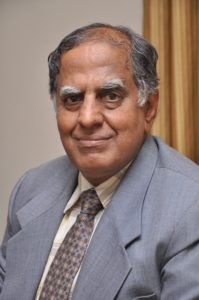 Dr. Zubin Marolia is an excellent human being and a very kind hearted person. He is also an outstanding Homeopathic Doctor believing in integrative medicine. The reason for this sequence is that I personally believe that a good doctor has to be a kind human being to start with.
Dr. Zubin Marolia is an excellent human being and a very kind hearted person. He is also an outstanding Homeopathic Doctor believing in integrative medicine. The reason for this sequence is that I personally believe that a good doctor has to be a kind human being to start with. I have had the fortune of having been associated with Dr. Zubin P. Marolia as his patient, due to recurrent episodes of Sorethroat (Pharyngitis), coupled with headaches emanating from suspected Sinusitis, in respect of which as a last resort I took to Homeopathy. I also suffered an episode of “Herpes Zoster” at the age of 42 years in the month of September 2006.
I have had the fortune of having been associated with Dr. Zubin P. Marolia as his patient, due to recurrent episodes of Sorethroat (Pharyngitis), coupled with headaches emanating from suspected Sinusitis, in respect of which as a last resort I took to Homeopathy. I also suffered an episode of “Herpes Zoster” at the age of 42 years in the month of September 2006.